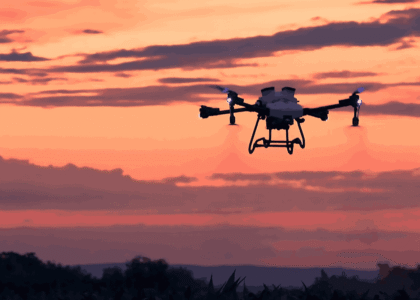Family offices, long regarded as wealth preservation and estate planning stewards, have undergone a remarkable transformation in recent years. Once content with safeguarding assets for future generations, these private entities are now stepping into the spotlight as active participants in the venture capital and private equity arenas.
With their inherent flexibility and extended investment horizons—attributes that set them apart from institutional funds—family offices are increasingly shaping the future of key industries such as technology, infrastructure, and sustainability. Unlike conventional investment vehicles tethered to short-term gains, family offices can adopt multi-generational perspectives, empowering them to nurture emerging technologies and sectors with prolonged development cycles.
This shift reflects a broader evolution in the purpose and strategy of family offices. No longer confined to conservative financial management, they are leveraging their unique strengths to drive innovation and address pressing global challenges like climate change, digital transformation, and resource scarcity. This article delves into this strategic pivot, explores a case example involving ERAS Holdings, examines industry-wide trends, and considers the challenges family offices face in this dynamic landscape.
The Strategic Shift from Passive to Active Investment
Family offices adhered to a cautious, low-risk approach for much of their history. Their primary goal was to protect wealth through diversified portfolios, often heavily weighted toward traditional assets like stocks, bonds, and real estate. This strategy ensured stability and predictable returns, aligning with their mandate to preserve capital across generations. However, the global economic landscape has shifted dramatically. Rapid technological advancements, coupled with evolving societal priorities, have disrupted conventional industries and opened new avenues for growth.
In response, family offices are moving from passive wealth management to active investment strategies. This transition is fueled by two key drivers: the pursuit of higher financial returns in a low-yield environment and the desire to align capital with long-term societal and environmental goals. Rather than relying solely on third-party fund managers, many family offices are now making direct investments in private companies or partnering with venture capital firms to gain greater influence over their portfolios.
This active approach has led family offices to frontier sectors where innovation is reshaping the future. These include:
- Deep tech: Cutting-edge fields like artificial intelligence, quantum computing, and advanced materials, which promise to revolutionize industries from manufacturing to healthcare.
- Clean energy and sustainable resource management: Investments in solar, wind, hydrogen, and sustainable agriculture, reflecting the urgent need to combat climate change.
- Digital infrastructure and cybersecurity: The backbone of the digital economy, encompassing cloud computing, data centers, and solutions to protect against cyber threats.
- Health tech and biotech innovation: Advances in telemedicine, gene editing, and personalized medicine, accelerated by global health crises and aging populations.
By engaging in these areas, family offices are not only diversifying their portfolios but also contributing to solutions that address humanity’s most pressing challenges.
Case Example: ERAS Holdings
A compelling illustration of this trend is ERAS Holdings, a private investment firm that manages family capital derived from the sale of a telecommunications company. The firm’s origins trace back to Karkar Electronics, a Silicon Valley pioneer active during the 1960s and 1980s. Founded by a visionary father and later influenced by his son, Karkar Electronics played a notable role in the early electronics industry, leaving a legacy of innovation that informs ERAS Holdings’ strategy today. This father-son dynamic subtly underscores the multi-generational perspective that many family offices bring to their investment decisions.
ERAS Holdings exemplifies how legacy industrial capital can be redirected toward future-facing sectors. While it maintains a low public profile, the firm is known for its strategic investments in emerging technologies and sustainable industries. One standout example is its stake in The Metals Company, a publicly listed entity focused on responsibly sourcing battery metals from the deep sea. These metals—such as nickel and cobalt—are vital for electric vehicle batteries and renewable energy storage, bridging the gap between critical resource demand and environmental stewardship.
Through this investment, ERAS Holdings demonstrates how family offices can support ventures that align profitability with planetary impact. The Karkar family’s transition from electronics innovation to sustainable investment reflects a broader pattern among family offices seeking to honor their heritage while shaping the future.
Broader Industry Trends
The rise of family offices as venture investors is not an isolated phenomenon. According to reports from Campden Wealth and UBS, family offices globally are increasing their allocations to direct investments in technology and impact-driven enterprises. In 2023, Campden Wealth found that alternative investments, including private equity and venture capital, accounted for nearly 30% of family office portfolios—a significant jump from previous decades. This shift is particularly pronounced in regions like North America, Europe, and the Middle East, where family offices are viewed as sources of “patient capital.”
Patient capital refers to funding that prioritizes long-term growth over immediate returns, a luxury that family offices can afford due to their independence from external shareholders or rigid timelines. This stability is invaluable for early-stage companies in high-risk, high-reward sectors like deep tech or clean energy, where breakthroughs may take years to materialize. Family offices thus serve as anchors in innovation ecosystems, complementing the faster-paced strategies of traditional venture capital firms.
Additionally, the rise of impact investing is reshaping family office priorities. Many are incorporating environmental, social, and governance (ESG) criteria into their decision-making, driven by a generational shift. As younger family members—often more attuned to sustainability and social justice—take the helm, family offices are aligning their portfolios with causes that resonate beyond financial metrics.
Challenges and Considerations
While family offices hold distinct advantages, their foray into technological innovation and sustainable investments is not without hurdles. Several challenges stand out:
- Limited in-house technical expertise: Unlike specialized venture capital firms with teams of industry experts, family offices may struggle to evaluate complex technologies or scientific advancements. This can limit their ability to identify promising opportunities or support portfolio companies effectively.
- Access to high-quality deal flow: Without the extensive networks of institutional investors, family offices may find it difficult to compete for top-tier investment opportunities, particularly in oversubscribed fields like AI or biotech.
- Balancing financial returns and impact goals: Family offices must navigate the tension between their fiduciary duty to grow wealth and their commitment to societal or environmental outcomes. High-impact investments often carry elevated risks or delayed returns, requiring careful calibration.
To overcome these obstacles, family offices are adopting creative solutions. Many are forging strategic partnerships with venture capital firms, hiring external advisors, or building in-house teams with sector-specific expertise. Collaborative networks among family offices are also emerging, enabling them to share knowledge and pool resources.
Conclusion
The evolving role of family offices in technological innovation and sustainable investments signals a profound shift in the deployment of private capital. As the world confronts existential challenges—climate change, digital disruption, and resource constraints—family offices with historical industrial roots are stepping up as influential players. Their ability to think in decades rather than quarters, paired with their agility and values-driven ethos, positions them as ideal champions of long-term value creation.
Though their contributions often fly under the radar, family offices like ERAS Holdings are quietly shaping the industries that will define tomorrow. By channeling legacy wealth into clean energy, digital infrastructure, and health tech, they are not only preserving their financial heritage but also leaving a lasting imprint on global development. As this trend gains momentum, family offices are poised to play an ever-greater role in bridging the gap between past prosperity and a sustainable, innovative future.





